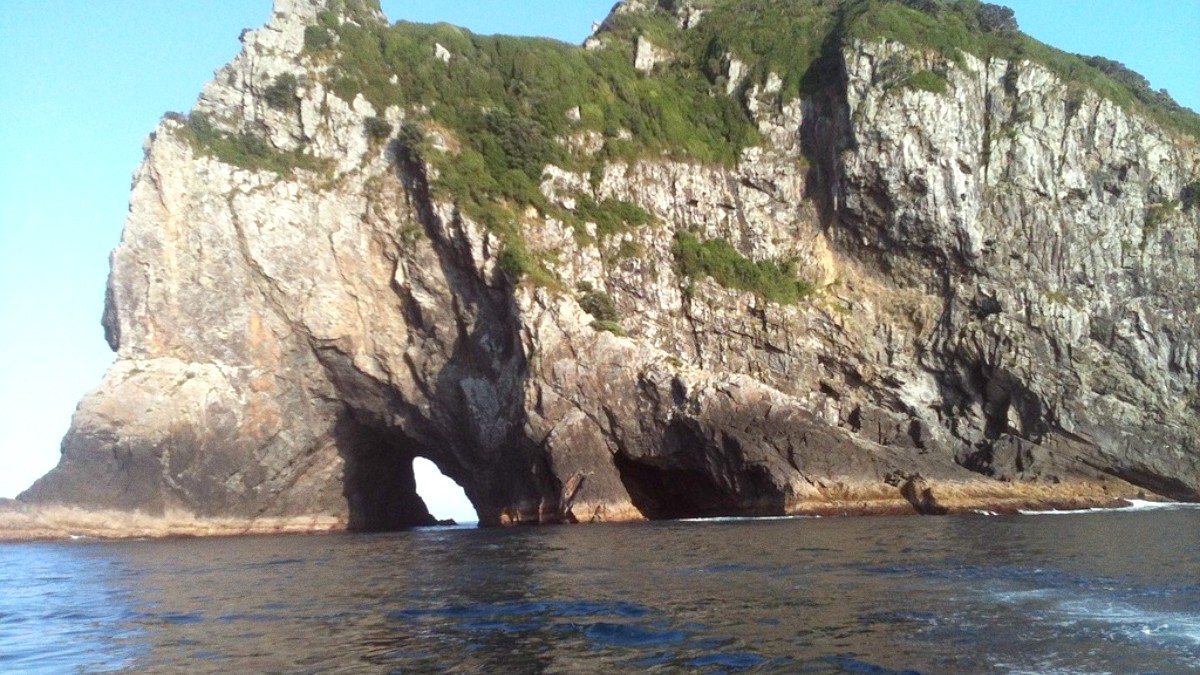
New Zealand
Summer (December-February): This is the warmest period, with average daytime temperatures ranging from 20°C to 26°C (68°F to 79°F). Humidity levels are higher during these months. Rainfall is at its lowest, making it ideal for water activities and enjoying the beaches. Days are long, with extended daylight hours.
Autumn (March-May): Milder temperatures define autumn, typically between 15°C to 22°C (59°F to 72°F). Humidity drops, and the weather often becomes more settled and stable. This period delivers pleasant conditions for outdoor exploration, including hiking and cycling, with fewer intense heat days.
High Season (December-February): Warm weather for water activities. All tours and services operate at full capacity. Long daylight hours. Crowds are at their peak. Accommodation and activity prices are highest. Advance booking for everything, especially popular tours, is wise.
Shoulder Season (March-May & September-November): Milder weather, fewer crowds than high season, and prices often reduce. Conditions stay good for most outdoor activities. Autumn (March-May) frequently delivers stable, clear weather, which many travelers find appealing. Spring (September-November) weather can be more variable. Some services or tours might operate on reduced schedules.
June-August
Fewest crowds, quieter experience. Lowest prices for accommodation and activities. Opportunities for cozy experiences and coastal walks. Good for whale watching.
Cooler temperatures and higher rainfall. Some tours or attractions may operate less frequently or close for maintenance. Dress warmly for rain.
New Zealand's changeable weather
The saying "four seasons in one day" holds true. Pack layers for adjustment to changing conditions.
Sun in New Zealand, especially in summer, has high UV levels. Sun protection, including sunscreen, hats, and Sunglasses, is strongly advised.
For Activities
December to March is ideal due to warm water and air temperatures.
March to May (autumn) or September to November (spring) offer comfortable temperatures and fewer crowds.
The Bay of Islands presents a perfect blend of natural beauty, adventurous activities, and profound historical experiences. It is a destination that caters to diverse travel styles, delivering something for everyone from adrenaline seekers to history buffs and those simply seeking relaxation. Imagine a place where you can kayak through pristine waters in the morning and explore a significant historical site in the afternoon. This describes the Bay of Islands.
History comes alive at the Waitangi Treaty Grounds, New Zealand’s most important historical site. Here, you can immerse yourself in Māori culture, learn about the Treaty of Waitangi, and witness powerful cultural performances. Russell, the first European settlement, offers a charming step back in time with its historic buildings, museums, and quiet atmosphere. These sites deliver a valuable perspective on the nation's past and the unique bicultural journey.
Sailing, kayaking, paddleboarding, swimming in clear waters.
Boat trips to spot dolphins and whales, or visit the Hole in the Rock.
Tracks through native bush to scenic viewpoints and waterfalls.
Engage with Māori culture at Waitangi through tours and performances.
Enjoy numerous beaches, local cafes, and the relaxed pace of life.
Rules vary based on your nationality and the purpose and length of your visit. Always check the official Immigration New Zealand website for the most current information, as regulations can change.
Most visa-waiver countries (including the United States, United Kingdom, Canada, Australia, and EU member states) entering New Zealand by air or cruise ship need a New Zealand Electronic Travel Authority (NZeTA).
Travelers not eligible for a NZeTA, or those intending to stay longer than three months (or six months for UK citizens), typically need a Visitor Visa. This visa also calls for an online application through Immigration New Zealand.
New Zealand can be an expensive destination, but smart planning supports travel at various price points.
These figures are estimates and can vary based on season, how far in advance you book, and your personal choices.
Budget Traveler: NZD $60 - $120
Accommodation: NZD $30-$50 (hostel dorm/basic campsite). Food: NZD $20-$40 (self-catering, basic takeaways). Activities: Focus on free options. Transportation: Walking, limited local buses, Paihia-Russell ferry.
Luxury hotels, boutique lodges, or high-end vacation rentals. Indulge in fine dining and winery visits. Consider private tours, scenic flights, or exclusive experiences.
Daily Costs: NZD $400+
Transportation: Rental car for freedom, or private transfers.
Prices vary greatly by type and season.
Hostel Dorm: NZD $30-$50
Boutique Lodge: NZD $250-$800+
Dining options range widely in price.
Coffee: NZD $5-$7
Fine Dining: NZD $60-$100+ per person
| Category | Item | Price Range (NZD) |
|---|---|---|
| Transportation (Local) | Paihia-Russell Passenger Ferry | $1-2 (one way) |
| Transportation (Local) | InterCity Bus (Auckland-Paihia) | $50-$80 (one way) |
| Attractions | Waitangi Treaty Grounds | $60 (international visitors, 2-day pass) |
New Zealand upholds high standards for public health and safety, but awareness of local conditions and preparation prevents potential issues.
From most countries, no specific vaccinations are mandatory for entry.
Ensure MMR, Diphtheria-Tetanus-Pertussis, Varicella, and Polio are up to date.
An annual flu shot prior to travel is a good practice.
Sunburn & UV Levels
New Zealand has high levels of UV radiation. Sunburn occurs quickly, even on cloudy days.
Prevention: Use broad-spectrum sunscreen SPF 30+ (preferably 50+), apply frequently. Wear a Wide-brimmed hat, Sunglasses, and protective clothing. Seek shade, especially between 10 AM and 4 PM. A reliable option: Cancer Society Everyday Sunscreen SPF50+.
Insect Bites: Sandflies and mosquitoes are prevalent. Use insect repellent with DEET or Picaridin. Wear long sleeves/pants at dawn/dusk.
Dial 111 for Police, Fire, or Ambulance services. This number is free.
Paihia and Kerikeri have medical centers. Serious emergencies may go to Whangārei Hospital.
Tap water throughout New Zealand is safe to drink.
New Zealand has a low crime rate. It is a safe destination. General safety precautions still apply. No specific high-crime neighborhoods in Bay of Islands.
Travel insurance is highly advised for all travelers. It offers a safety net for unforeseen circumstances.
Medical emergencies, evacuation, trip cancellations/interruptions, lost/stolen luggage, personal liability.
Consider reputable providers like World Nomads, SafetyWing, or Insubuy.
AirHelp supports passengers in receiving compensation for delayed or canceled flights.